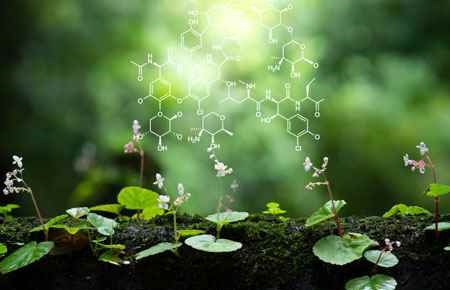
Molecular Biochemistry Major
Molecular Biochemistry is a major program that prepares people to research and study the chemical processes involved in the composition and construction of living cells of animals, people, plants, and other living organisms at the molecular level. A major program in molecular biochemistry will focus greatly on biochemical research relative to the structure and function of biological macromolecules and the role of molecular constituents and mechanisms in supramolecular assemblies and cells.
Courses in this major likely include instruction in such topics as molecular signaling and transduction, regulation of cell growth, enzyme substrates and mechanisms of enzyme action, DNA-protein interaction, and applications to fields such as biotechnology, genetics, cell biology, and physiology. As well, instruction in the chemical mechanisms of regulation and catalysis, protein synthesis and other syntheses, and biomolecular chemical reactions.
What can you do with a major/degree in Molecular Biochemistry Studies?
As a molecular biochemist, an individual may work in government, industry, or academia and likely will research the implications for medicine, genetics, and environmentally friendly biofuels and pesticides.
Trade Associations and Professional Organizations in Molecular Biochemistry Studies:
Professional associations are groups of specialists dedicated to topics in particular fields. Professional associations provide a wealth of online resources, some of which are geared specifically towards students. These organizations typically also host conferences and events, providing great opportunities for learning and networking across your field of interest.
- American Society for Biochemistry and Molecular Biology
- International Union of Biochemistry and Molecular Biology
- Biological/Biochemistry - American Chemical Society
- Professional Organizations - Biochemistry - LibGuides at California State University, Northridge
- The National Committee of Biochemists and Molecular Biologists
Publications/Magazines in Molecular Biochemistry:

